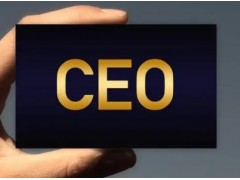Organisations are turning to younger members of the workforce to mentor more senior colleagues, but it takes training, a safe environment and an openness to new insights to make this relationship work.
“In the last decade or so, the traditional image of the mentor has been radically turned on its head,” says Simon Lance, Managing Director of Hays in Greater China. “In the corporate world, many organisations are encouraging reverse mentoring, where senior-level executives are coached by millennials and young recruits. This helps foster diversity, skills development, the idea of lifelong learning and an inclusive culture.”
How do you make reverse mentoring work? Hays spoke to several HR experts and shares the following advice in its Hays Journal:
· Be open to new insights: Donna Miller, European HR Director at Enterprise Rent-A-Car, says their reverse mentoring programme developed from an initiative that saw mostly baby boomer leaders’ mentor primarily millennial junior to middle manager women. The aim was to identify women for promotional opportunities. As she explains, “Our senior directors quickly realised the value of spending time with younger team members (generally an hour a month), who were at the operational coalface and brought insights from different life experiences as well as different ways of working, particularly around innovative ways to communicate more effectively using technology.” Miller adds, “Their experiences and insights are invaluable in informing the business strategy, and this is an enormous benefit of having reverse mentoring.”
· Monthly meetings: PwC launched its reverse mentoring programme in 2014 as part of its diversity and inclusion drive. Kalee Talvitie-Brown, Head of People at PwC Consulting, says: “Diversity is something we value at PwC and it is also really valued by the younger generation. We wanted to empower them, to make them feel that their viewpoint was valid and look at different perspectives.” They currently have 122 millennials mentoring 200 partners and directors. The mentors meet with their mentees once a month, while mentors meet quarterly to discuss any issues.
· Train mentors: PwC also runs a training programme for the mentors every January which looks at the dynamics between different generations, what their role will entail and hierarchical boundaries. It’s important that age or seniority does not dictate who leads this type of relationship. “The relationship between the mentee and the mentor should be led by the mentor, rather than the senior-level executive,” says Talvitie-Brown. “We want the mentors to feel as though they can ask challenging questions to the partners and to be clear about their purpose.”
· Create a safe environment to share experiences: Krystal Allen is a millennial mentor and Manager at PwC. She says: “What I have enjoyed most is the ability to share my experience as a woman within the firm to challenge the partners’ views and ways of working, in a safe environment. We want to help shape our partners to appreciate and recognise differences, and the reverse mentoring programme gives you the space and ability to do just that.”
 手机版|
手机版|

 二维码|
二维码|








